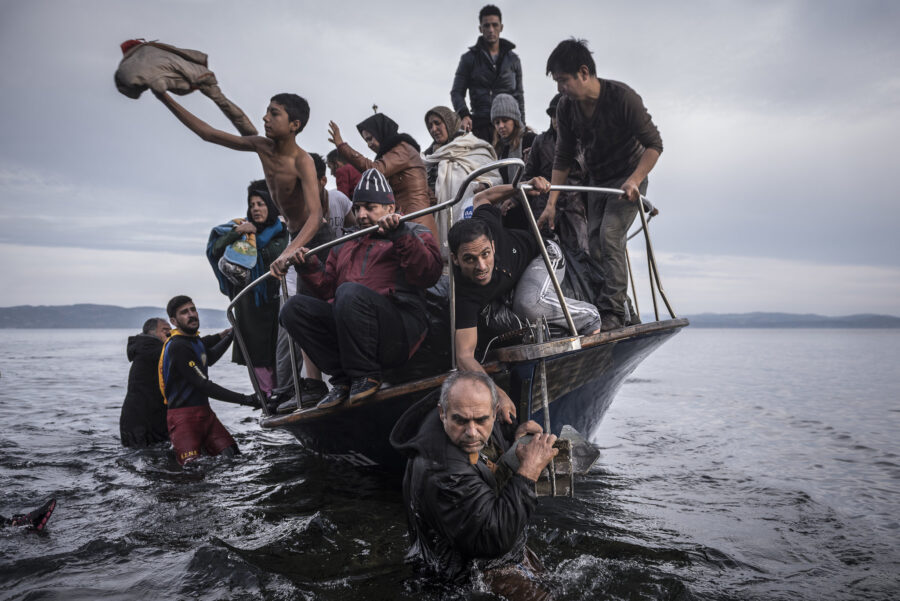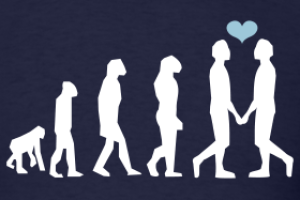I got married the day after Trump’s inauguration, and ironically, boarded a cruise ship to Mexico for an awesome honeymoon. I got back and was shocked to hear about everything that had happened in a week. What was even more shocking (sort of) was how much discord there was between Christians. Facebook itself looked like a war zone with many Right and Left leaning blog posts being lobbed at the other side. What was interesting, is that every comment on either side, was more or less true, and yet, the conversation seemed just as heated.
Perhaps you have felt something similar. Here is a short list of responses I have encountered:
“We can’t let everyone in for the safety of our country.”
“We have to protect America first.”
“Why didn’t you get angry when Obama did this back in 2011?”
“This is not a Muslim Ban!”
“This is a Muslim Ban!”
“Jesus was a refugee himself!”
“Doesn’t the Bible command us to care for the sojourner?”
As I interacted more and more with people I was continually frustrated by the lack of traction I was having. What was happening? Where was the disconnect?
It was then that I realized that I was having a completely different conversation. I had been trying to communicate a theological point: We must have compassion for our neighbors and our enemies because that is what Jesus showed us on the cross. However, this is not what my interlocutors were arguing against. They were trying to communicate a political point: We must understand our country’s capacity to care for these individuals while maintaining security for our own citizens.
Now, both of these conversations are great, and I think that both are well worth having. Both conversations take seriously the well-being of others and both can be Christian positions. However, as Christians, I think that the theological conversation is of first importance.
What is the first thing that comes to your mind when you hear the word “refugee”? What kind of person do you see in your mind when you think of refugees? Do we see them as human? Less than human? Do you see them primarily as dangerous or as people in need? I think that your answers are a good gauge of where your heart is at.
As Christians, we are called to follow Jesus in radical obedience and participate in his crucifixion. Our call to carry our cross after him is not an optional political position, but a theological imperative given to those who would be followers of Christ. Although the call is not to literally carry a wooden beam around with you, its is a call to imitate Christ’s character exemplified on the cross. It begins with a specific posture within the heart and is acted out according to Spirit-given wisdom.
What would we say to non-believers when they asked what characterized the heart of Jesus? I think many would immediately respond with love, compassion, patience, self-giving, sacrifice, inclusion, reconciliation, a passion for the Father’s glory, and seeing others truly live and flourish. Not a complete list, but a good start. Now, what evidence from Jesus’ life would we give to substantiate our claims? We might point to Jesus caring for the Samaritan woman at the well, an enemy to the Jewish people and an outcast to her own people, by offering the water of life (John 4). We could point to Jesus eating with “tax collectors and sinners,” other outcasts within Jewish society, at the expense of his reputation among the religious elite (Matthew 9). Yet, the most compelling evidence is found when Jesus allows himself to share his last meal with his betrayer, and then willingly goes to the cross to suffer injustice on our behalf. The apostle John comments later,
“In this the love of God was made manifest among us, that God sent his only Son into the world, so that we might live through him. In this is love, not that we have loved God but that he loved us and sent his Son to be the expiation for our sins” (1 John 4:9-10).
So how does this affect the posture of our heart? In short, we must have compassion for refugees. We must see them human, and as ripe vessels for God’s redemptive actions. There ought not to be thoughts and ideas of self-preservation in the control seat of our hearts. Instead, the self-giving and sacrificial love of Christ must be on the throne. If our knee-jerk reaction is that of fear and trembling at the idea of refugees, then we have not had the proper exposure and experience of God; our knees are bowed for the wrong reasons and we are facing the wrong way. If we are to follow Jesus and bind ourselves to him in his crucified death and resurrected life, then we must have a deep love and empathy for refugees.
With our heart in the right place, we can move to right action. How should we respond to this crisis? First, we can pray for refugees. We can pray for their safety, for their flourishing, for them to have justice. We can pray that God moves in mighty ways to transform all of the death and destruction into something beautiful. We can pray that God enacts justice for these people. We can pray that our hearts grow with compassion and love for these people. We can even pray that God would bring refugees into your life so that you could have an opportunity to care for them. Second, we can find out if there are any organizations in our area that take care of refugees and ask them how we can help. There are many practical steps that one could take, but I think that these actions should be done with wisdom and the love of Christ.
After all of this work, we can have a meaningful discussion regarding politics and what is the best way to solve this crisis. When we begin with a common starting place such as the cruciform love of Christ, We can actually make progress even when we disagree. Our disagreements are shown to be over the implementation of our ethics, and not with the ethics themselves. Our disagreements push us towards compromise and an overall greater solution. We can let wisdom on both sides of the aisle shape our plan for caring for refugees when are purpose is unified by the love of Christ. When our politics are fueled by pride, fear, and self-interests, they are of no effect; they simply divide us and hurt others. When our politics are fueled by the same passions of Jesus – self-giving love and reconciliatory compassion for the outcasts – they can actually change the world.





Leave a Reply
Your email is safe with us.